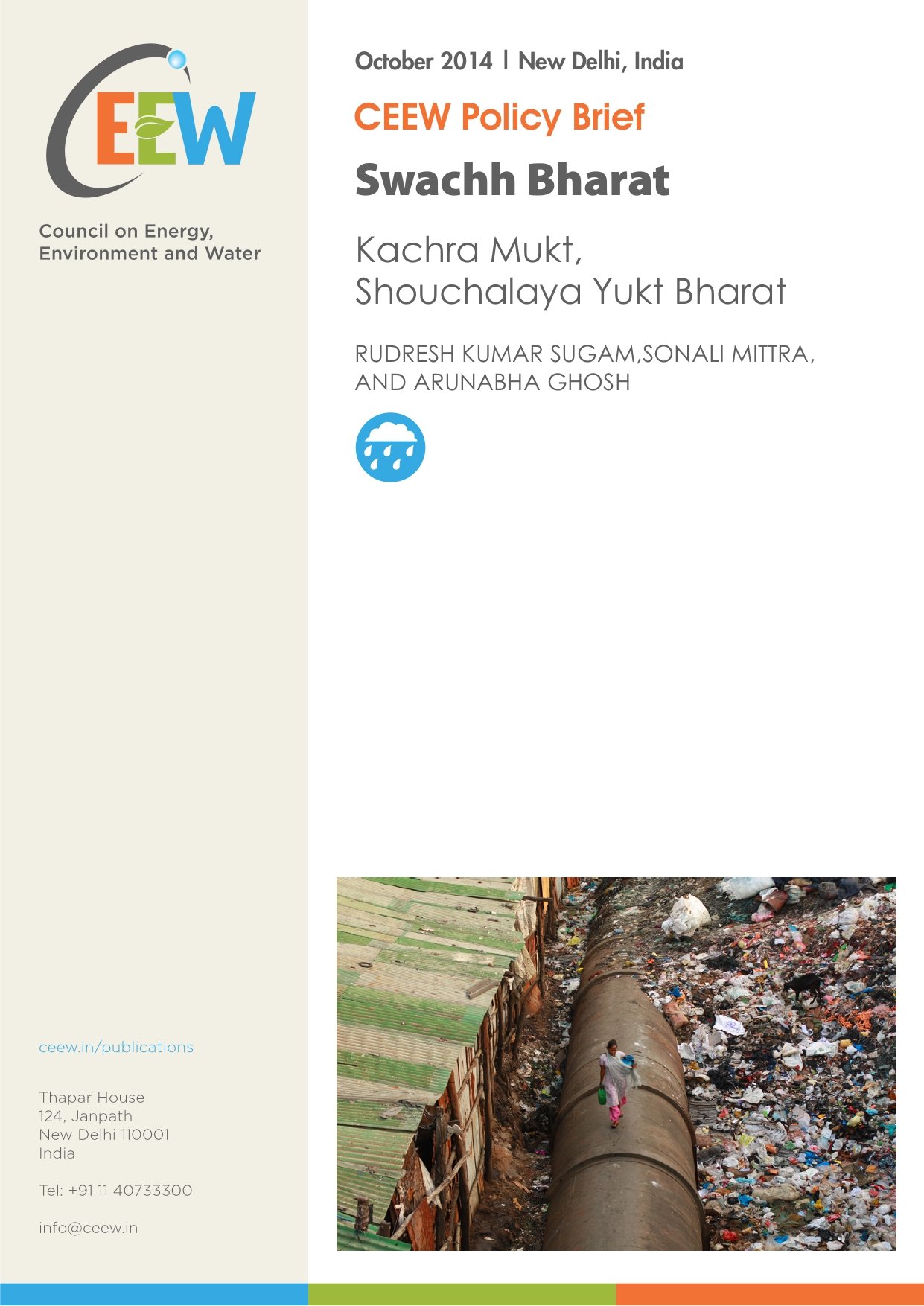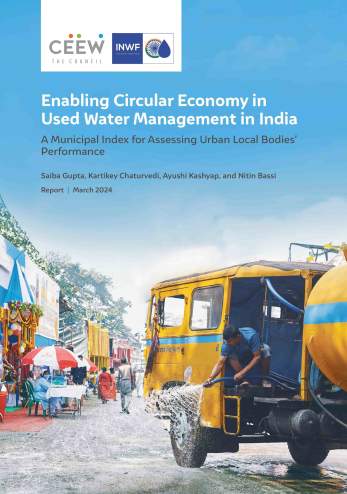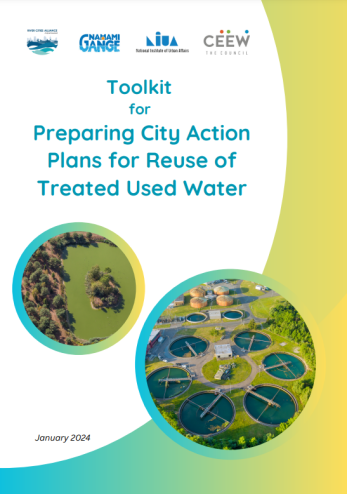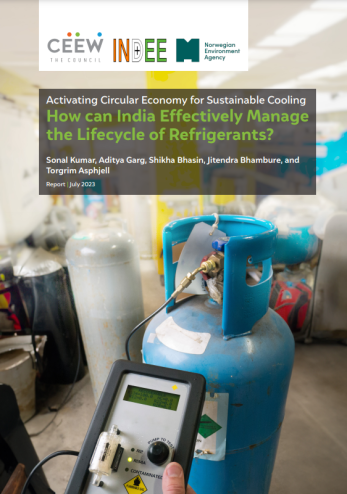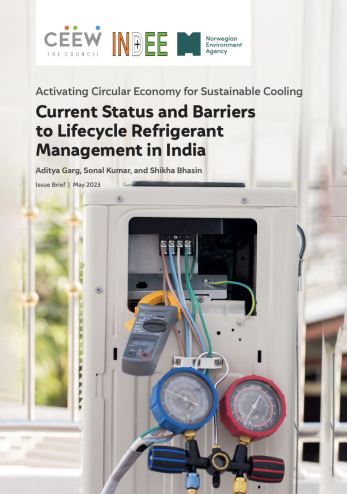Policy Brief
Swachh Bharat
Kachra Mukt, Shouchalaya Yukt Bharat
Rudresh Kumar Sugam, Sonali Mitra, and Arunabha Ghosh
October 2014 | Circular Economy
Suggested Citation: Sugam, Rudresh Kumar, Sonali Mittra, and Arunabha Ghosh. 2014. Swachh Bharat: Kachra Mukt, Shouchalaya Yukt Bharat. New Delhi: Council on Energy, Environment and Water.
Overview
This policy brief is a contribution from CEEW toward developing the vision and action plan for the ‘Swachh Bharat’ mission. It draws on extensive literature and researchers’ own analysis to outline specific interventions, estimate the associated cost and offer a detailed phase-wise roadmap to fulfill the mission. In order to focus attention on the most important and neglected sectors and to ensure that the Swachh Bharat Mission has clear, measurable outcomes, it identifies two key tracks: Rural Sanitation and Urban Solid Waste Management. The specific interventions required for these two tracks fall under four broad categories: Behaviour, Capacity, Infrastructure, and Management.
Framework for Swacch Bharat
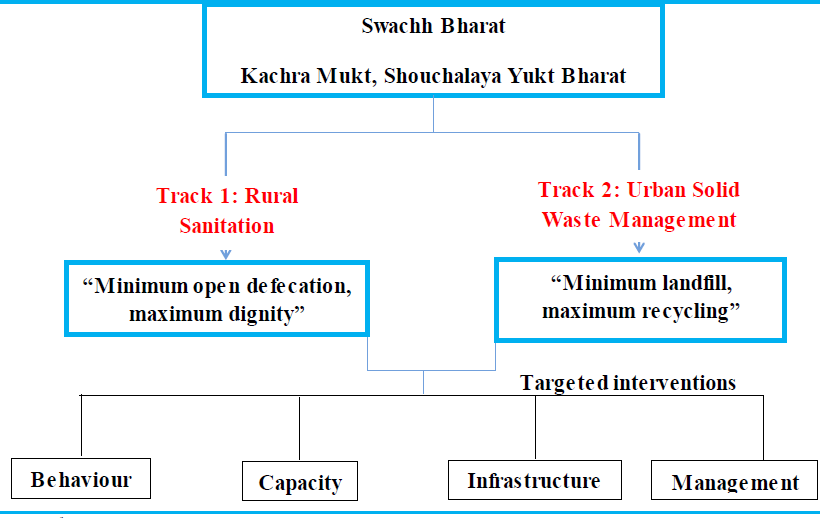
Key Highlights
Rural Sanitation
- It is essential to analyse the status of toilets and map people’s behaviour to understand the indigenous problem and not generalise it countrywide.
- Behaviour could be changed by undertaking focussed group discussions, showing audio-visuals, and through community meetings for associating ‘shame’ and ‘disgust’ with open defecation and ‘pride’ with having clean toilets.
- Local masons could be trained in groups of 20-30 in using local materials for the construction of toilets and techniques to design proper toilets.
- Training/awareness campaigns could be conducted for local sanitary material vendors and entrepreneurs about the marketing of sanitation utilities.
- The district level sanitation team could take the training course designed by the Administrative Staff College of India (ASCI) in association with UNICEF.
- Every school should be mandated to build a separate toilet for girls. Also, at least one community toilet complex should be built per village.
- Every household should be motivated to build its own toilet customised to fit the local situation.
- It is essential to build an overall efficient system of sanitation programmes from framing state-level policies to the maintenance of individual household level toilets.
- Related state departments should do monthly/quarterly meetings in order to understand the complexity/challenges comprehensively and develop integrated plans.
Urban Solid Waste Management
- The per capita waste generation rate in India has increased from 0.44 kg/day in 2001 to 0.5 kg/day in 2011, fuelled by changing lifestyles and an increase in purchasing power of urban Indians.
- Lack of financial resources, institutional weaknesses, improper choice of technology and public apathy towards waste have made the prevalent system of waste management unsatisfactory.
- The solid waste management officers should facilitate information on backward and forward linkages for waste collection, transport, processing, and disposal. They should provide information on opportunities for local recycling and decentralised composting.
- Urban Local Bodies (ULBs) should map the areas and positions for community dustbins (high quality) with minimum of 500 litres capacity.
- ULBs should order and place the required number of dustbins and ensure regular cleaning and emptying of the dustbins. Also, they should facilitate single-window clearance for PPP-based models for waste treatment projects.
- There is a need to establish a research organisation to research on developing a performance index for processing and disposal plants to monitor mechanisms for waste management.
Behaviour could be changed by undertaking focussed group discussions, showing audio-visuals, and through community meetings for associating ‘shame’ and ‘disgust’ with open defecation and ‘pride’ with having clean toilets.




